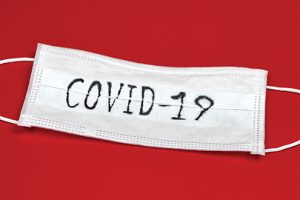It’s important to maintain collegiality between referring and receiving clinicians; and senior and junior medical practitioners for a mutually supportive environment, writes Dr Justine Jordan

Dr Justine Jordan
Working in a busy Paediatric Emergency Department (ED), we receive many different referral letters from patients. The majority are from experienced general practitioners (GPs) and are detailed but very much to point out the doctor’s concerns at that time and many asking us to specifically rule out a certain condition that may require urgent treatment. Other letters are short one-liners; ‘Please assess’.
A colleague drew my attention to a letter received while on shift recently from an out-of-hours doctor who appeared disgruntled. It was addressed to the named ED with “Emergency” written in inverted commas and in one sentence stated, “Do not discharge this very ill child again”. It was signed without a Medical Council registration number and an illegible signature.
The doctor who was going to review this patient, as all of us do, reviewed the vital signs which had been performed on three occasions since registration in the ED and they were all within normal limits — the urine was negative of any infection, blood or protein and they checked to see what investigations were performed and diagnosis given on the previous occasion.
The child had not presented to this ED in the last 10 months and when called, was drinking dioralyte and playing with other children in the waiting room.
Tension-filled consultation
However, the doctor was clearly apprehensive, as I would be, thinking they are heading into a potentially tension-filled consultation initiated by the referring physician.
I thought the doctor who had referred this patient was out of line and their comments unwarranted. If they were that worried or wanted to ensure specific investigations were performed, then perhaps a quick phone call or short more detailed letter would suffice.
But this incident served to help me recall instances when friends and I had been equally critical about another doctors’ work. I have been thinking about this case since and realise we are all under pressure with understaffing leading to long working days, with heavy workloads and increasing complexity of patient care we can all become frustrated and disheartened with the system but this is no excuse for undermining another doctor’s work.
This situation occurs vice versa also, I hear all the time from colleagues, ‘Why did that GP send this patient in, they are clearly not unwell?’ I remind them that in hospitals we have the luxury of observation which in children may be all the investigation they need. We can also repeat key vital signs with specially trained nurses on paediatric-appropriate machines, collect urines and send them for microscopy, get rapid result viral and Group A Streptococcus swabs; ensure they are drinking, monitor their behaviour when the temperatures abate, and more easily request a consultant review.
The 10-minute GP consultation, which invariably occurs when the children have a temperature of 40°C plus, has to conclude with a differential diagnosis and a decision to refer to hospital or not. And with recent high numbers of meningococcal, measles, pertussis and a virulent flu virus, the GP’s hands are tied and they must refer.
Under the bus
On more than one occasion, I have seen senior physicians throw other doctors under the bus, so to speak, in the presence of the patient with comments such as, “How was this not diagnosed sooner?”, “That CT was unwarranted” or “This is clearly not septic arthritis!” Perhaps there is something reassuring about saying “Your doctor didn’t do a good job and now I’m going to take care of you.”
These comments are very unhelpful for the patient most of all. They ignite doubt and anger and are wholly unprofessional. Maybe it is because of the nature of emergency medicine (EM) that I have heard many of these sorts of comments as we are expected to be specialist registrars in each of the medical and surgical subspecialties (in many cases we are not far off!), but we do not proclaim to be.
We are specialists of differential diagnoses and as one experienced EM consultant advised me one day, “We are paid to be paranoid. We must think of the worst-case scenario and try to rule it out”.
Culture of respect
In a time of increasing risks being forced upon all of us due to our overstretched and underresourced health service we must aim for better collaboration and cooperation among physicians and the creation of a culture of respect, which will undoubtedly benefit patients and maintain their confidence in us as professionals.
 Irish Medical Times Medical News for Healthcare Professionals
Irish Medical Times Medical News for Healthcare Professionals






